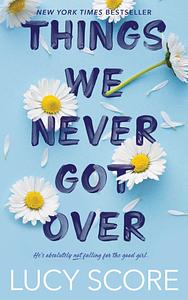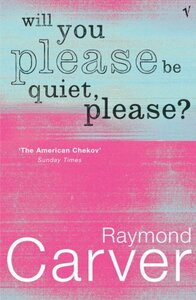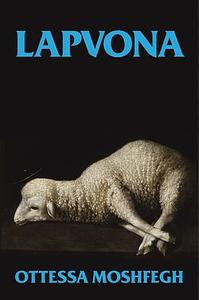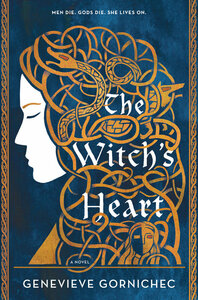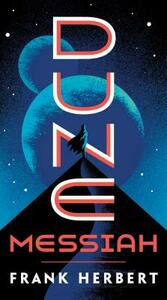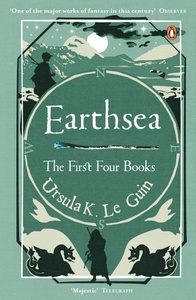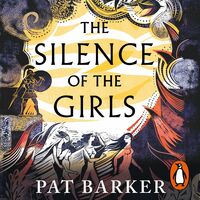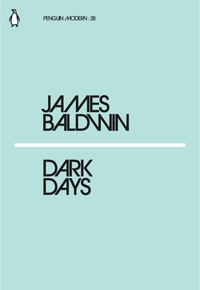Take a photo of a barcode or cover
myrtosfullybooked's Reviews (163)
Perfect for admirers of the singular hysteric housewife-of-the-30s trope, aptly depicted again and again throughout the collection...
Nevertheless, "Signals" was a brilliant story.
Nevertheless, "Signals" was a brilliant story.
The eerie medieval and decaying atmosphere was excellently portrayed and despite the horrific things described, the book flowed smoothly and absorbed me. Moshfegh does a marvellous job of turning dark, sinister, and often horrific behaviours into matter-of-fact, almost menial, things through her writing. As other reviewers have also remarked, I too found this book springing right out of a "Green Knight"-like or "The Wich"-like universe. Lapvonians seemed crooked physically and figuratively, disturbing and sinked in absolutely oblivious misery.
I absolutely loved the subtle way through which O.M. exposed every character's perverse religious piety, ultimately manifesting into greedy, pointless or degrading and antiheroic way of life. The book never offers a happy ending or a redeeming element to miserable Lapnova, and much like the seasons' circular moves that also mark the passage of the book's chapters, things remain the same, characters fall into the same tragic and often Shakespearean patterns, and life goes on. The rating corresponds to all of the above and my belief that the book is an excellent sample of its genre. That said, I have not yet made up my mind whether I personally liked it or not. Perfect for fans of A24 movies and body-horror period stories. I'm afraid I have not read enough from this genre to be able to recommend similar books. If I think of anything as time passes, will add it! :)
I absolutely loved the subtle way through which O.M. exposed every character's perverse religious piety, ultimately manifesting into greedy, pointless or degrading and antiheroic way of life. The book never offers a happy ending or a redeeming element to miserable Lapnova, and much like the seasons' circular moves that also mark the passage of the book's chapters, things remain the same, characters fall into the same tragic and often Shakespearean patterns, and life goes on. The rating corresponds to all of the above and my belief that the book is an excellent sample of its genre. That said, I have not yet made up my mind whether I personally liked it or not. Perfect for fans of A24 movies and body-horror period stories. I'm afraid I have not read enough from this genre to be able to recommend similar books. If I think of anything as time passes, will add it! :)
Beautiful and emotional, this was the perfect fantasy retelling of Angrboda's story without straying from the folk tales recounted in the relevant Sagas (the Poetic and the Prose Edda). I had a bit of an issue with the conversations between characters, especially Loki and Angrboda but they improve a lot as the book moves along and by the time the story's Part II comes to a close, I was in tears...
PERSONAL INTERPRETATION & REVIEW: ⭐️⭐️⭐️.5
The review and ranking covers all four books but out of them my favourite was The Farthest Shore (Book 3) and I would give that one four stars.
It was really refreshing to read a book where the main characters are not predominantly white especially given the time it was written. Thankfully Le Guin reminds the reader to check our assumptions with little mentions or descriptions here and there so even if your mind automatically drifts to an all-white cast she makes sure to gently pull you away from any subconscious reader bias.
With the exception of Tehanu, the rest of the books can easily be read as standalone. That said, I am not sure I would recommend that and I don't think I would have enjoyed them as much had I read any one book individually. Le Guin finds beautiful ways to weave the books together and offers such wholesome wink-to-the-reader moments connecting their plots and for me it was really satisfying to see the various stories return to and meet with their roots.
This was an enjoyable fantasy series and I found it very easy to visualise Earthsea through Le Guin's descriptions. I can't help but feel that Terry Pratchett's Discworld Witches series (starting in '87) draws inspiration from Ged's story and the Earthsea village witches and pays homage to Le Guin's work. I particularly loved the idea that the basis of magic is knowing a thing's true name, also known in folklore as the Law of Names.
The first three books are for all ages, however, book four (Tehanu) felt more sombre and different in tone. It featured some definitely more mature themes and got quite dark at times, which caught me completely unprepared. I also found in the fourth book a lot of less-than-subtle commentary on social questions gender roles, and misogyny, and though I usually love that sort of thing, it kind of tired me this time. I am fully aware this may be because I was looking for a break from constant reminders of sexism, violence against women, and the patriarchy all around us (hence the escape to fantasy). At the same time, Le Guin seemed to adopt a more ironic tone against many of the characters and was breaking the 4th wall with the reader a lot more than I'd normally like - or at least than I was prepared for. The second book (The Tombs of Atuan) also centred a female character yet did not question as critically women's role in a male-dominated world. The first three books definitely felt more playful and loyal to the fantasy adventure tropes I would expect. That said, those very same tropes are primarily patriarchal and male-centred so breaking away from them is not at all a bad thing. I just think I was not tuned for what Tehanu had in store.
It is important to note that Tehanu was written in the 90s while the rest were written in the late 60s, early 70s and it is well known that by that time Le Guin had grown disillusioned with her earlier works and recognised that they were too male-centred. She wrote Tehanu resolved to change the focus of the book to the perspective of the powerless, those without privilege and access. I can't help but feel this frustration led her to take this a little too far but I am hands down all for that kind of effort in literature and completely stan her for trying to re-navigate her work and voice in what still is a male-dominated and male-narrative-dominated industry.
Sadly, I was a bit disappointed with the ending of the quartet and it left me wanting more but not in a satisfying and wholesome way. I would have been perfectly happy with The Farthest Shore being the last book of the series, yet I'm mindful there's 2 more books that contain short stories and novellas of Earthsea that perhaps tie in well with the conclusion in Tehanu.
WHO IS THIS FOR:
Non-transphobic or xenophobic Harry Potter fans. Anyone who enjoys a good, traditional fantasy quest. This is the OG fantasy series.
FAVOURITE LINE(S) FROM THE BOOK:
"The Master Herbal had taught him much of the healer's lore, and the first lesson and the last of all that lore was this: Heal the wound and cure the illness, but let the dying spirit go"
"Out of the sea there rise storms and monsters, but no evil powers: evil is of earth. And there is no sea, no running of river or spring, in the dark land where once Ged had gone. Death is the dry place."
TRIGGER WARNINGS:
Book four doesn't describe but mentions incidents of sexual violence against women and girls.
The review and ranking covers all four books but out of them my favourite was The Farthest Shore (Book 3) and I would give that one four stars.
It was really refreshing to read a book where the main characters are not predominantly white especially given the time it was written. Thankfully Le Guin reminds the reader to check our assumptions with little mentions or descriptions here and there so even if your mind automatically drifts to an all-white cast she makes sure to gently pull you away from any subconscious reader bias.
With the exception of Tehanu, the rest of the books can easily be read as standalone. That said, I am not sure I would recommend that and I don't think I would have enjoyed them as much had I read any one book individually. Le Guin finds beautiful ways to weave the books together and offers such wholesome wink-to-the-reader moments connecting their plots and for me it was really satisfying to see the various stories return to and meet with their roots.
This was an enjoyable fantasy series and I found it very easy to visualise Earthsea through Le Guin's descriptions. I can't help but feel that Terry Pratchett's Discworld Witches series (starting in '87) draws inspiration from Ged's story and the Earthsea village witches and pays homage to Le Guin's work. I particularly loved the idea that the basis of magic is knowing a thing's true name, also known in folklore as the Law of Names.
The first three books are for all ages, however, book four (Tehanu) felt more sombre and different in tone. It featured some definitely more mature themes and got quite dark at times, which caught me completely unprepared. I also found in the fourth book a lot of less-than-subtle commentary on social questions gender roles, and misogyny, and though I usually love that sort of thing, it kind of tired me this time. I am fully aware this may be because I was looking for a break from constant reminders of sexism, violence against women, and the patriarchy all around us (hence the escape to fantasy). At the same time, Le Guin seemed to adopt a more ironic tone against many of the characters and was breaking the 4th wall with the reader a lot more than I'd normally like - or at least than I was prepared for. The second book (The Tombs of Atuan) also centred a female character yet did not question as critically women's role in a male-dominated world. The first three books definitely felt more playful and loyal to the fantasy adventure tropes I would expect. That said, those very same tropes are primarily patriarchal and male-centred so breaking away from them is not at all a bad thing. I just think I was not tuned for what Tehanu had in store.
It is important to note that Tehanu was written in the 90s while the rest were written in the late 60s, early 70s and it is well known that by that time Le Guin had grown disillusioned with her earlier works and recognised that they were too male-centred. She wrote Tehanu resolved to change the focus of the book to the perspective of the powerless, those without privilege and access. I can't help but feel this frustration led her to take this a little too far but I am hands down all for that kind of effort in literature and completely stan her for trying to re-navigate her work and voice in what still is a male-dominated and male-narrative-dominated industry.
Sadly, I was a bit disappointed with the ending of the quartet and it left me wanting more but not in a satisfying and wholesome way. I would have been perfectly happy with The Farthest Shore being the last book of the series, yet I'm mindful there's 2 more books that contain short stories and novellas of Earthsea that perhaps tie in well with the conclusion in Tehanu.
WHO IS THIS FOR:
Non-transphobic or xenophobic Harry Potter fans. Anyone who enjoys a good, traditional fantasy quest. This is the OG fantasy series.
FAVOURITE LINE(S) FROM THE BOOK:
"The Master Herbal had taught him much of the healer's lore, and the first lesson and the last of all that lore was this: Heal the wound and cure the illness, but let the dying spirit go"
"Out of the sea there rise storms and monsters, but no evil powers: evil is of earth. And there is no sea, no running of river or spring, in the dark land where once Ged had gone. Death is the dry place."
TRIGGER WARNINGS:
Book four doesn't describe but mentions incidents of sexual violence against women and girls.
Something between Hilton's Lost Horizon and Hesse's Steppenwolf, The Age of Magic serves self-discovery in a hazy, magical realist backdrop of an Alpine village beside a lake. The book's atmosphere resembles a fever dream, with hints of dark foreboding, that materialises differently for each of the eight characters featured. Yet, not all of them get a clear self-rebirth moment (despite that seeming to be the main point of the book) and that didn't work for me. It was almost like the author decided to drop them halfway through, and I felt the book opened up a promise it didn't keep, or one that it got distracted from along the way.
The writing is beautiful and poetic. Featuring multiple direct and indirect references to Goethe's Faust, Okri uses that archetypal story to make a commentary on the human quest for the symbolic ideal of Arcadia, whatever this might mean for each of us. Or at least that's what I understood. The book also introduces the paradox of our need for tangible evidence for even the most elusive, mystical things, which if we obtain reduces those very things to dullness. And thus our search for meaning begins again. In a more literal interpretation, one could also read this book as an elegy to the mountains as -let's face it- they are inherently magical.
I quite enjoyed the poetic narration of the book but did not like the dialogues between characters as much; they felt forced, inorganic, and I thought they disrupted the flow of the story. Overall, I'd say read this book for the prose and atmosphere-building rather than the storyline and plot if interested.
PS: This was my first book from the Leeds Central Library as I've recently discovered the joy of borrowing books instead of overburdening my poor bookshelves. Support your local libraries folks!
WHO IS THIS FOR:
Fans of magical realism, journeys of self-discovery and re-birth, multi-character viewpoints.
FAVOURITE LINE(S) FROM THE BOOK:
"But abstractions defeat us. We need real and visible things. Even miracles must be concrete. [...] We lose our way because we can only believe in evidence. We lose our way with the very senses we use to verify."
TRIGGER WARNINGS:
None
The writing is beautiful and poetic. Featuring multiple direct and indirect references to Goethe's Faust, Okri uses that archetypal story to make a commentary on the human quest for the symbolic ideal of Arcadia, whatever this might mean for each of us. Or at least that's what I understood. The book also introduces the paradox of our need for tangible evidence for even the most elusive, mystical things, which if we obtain reduces those very things to dullness. And thus our search for meaning begins again. In a more literal interpretation, one could also read this book as an elegy to the mountains as -let's face it- they are inherently magical.
I quite enjoyed the poetic narration of the book but did not like the dialogues between characters as much; they felt forced, inorganic, and I thought they disrupted the flow of the story. Overall, I'd say read this book for the prose and atmosphere-building rather than the storyline and plot if interested.
PS: This was my first book from the Leeds Central Library as I've recently discovered the joy of borrowing books instead of overburdening my poor bookshelves. Support your local libraries folks!
WHO IS THIS FOR:
Fans of magical realism, journeys of self-discovery and re-birth, multi-character viewpoints.
FAVOURITE LINE(S) FROM THE BOOK:
"But abstractions defeat us. We need real and visible things. Even miracles must be concrete. [...] We lose our way because we can only believe in evidence. We lose our way with the very senses we use to verify."
TRIGGER WARNINGS:
None
